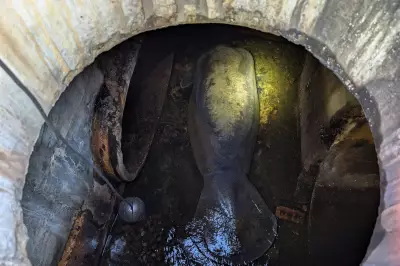
In a chilling discovery that underscores the accelerating effects of climate change, the body of a German hiker missing for 37 years has been recovered from a melting glacier in Switzerland.
The remains were found on the Theodul Glacier near Zermatt by a mountaineer last week, with DNA analysis confirming the identity as a 38-year-old man who vanished during a hike in September 1986.
A glacial time capsule
Valais canton police revealed the man's belongings, including a backpack, watch, and camera, were remarkably preserved in the ice. His identity was confirmed through DNA matching with living relatives.
Forensic experts noted the body showed signs of trauma consistent with a fatal fall, though the exact circumstances remain unclear.
Climate change reveals the past
This discovery marks the latest in a series of glacier finds across the Alps as rising temperatures accelerate ice melt. In recent years, retreating glaciers have revealed:
- WWI soldiers' remains
- Ancient artifacts
- Previously inaccessible crash sites
Glaciologists warn these recoveries will become more frequent as alpine glaciers could lose 80% of their volume by 2100 under current warming trends.
A family's closure
The man's surviving relatives, informed after the DNA match, expressed gratitude for finally learning his fate after decades of uncertainty. Swiss authorities are arranging for the remains to be returned to Germany.
Police have closed their investigation, concluding no foul play was involved in the tragic accident that claimed the hiker's life nearly four decades ago.





